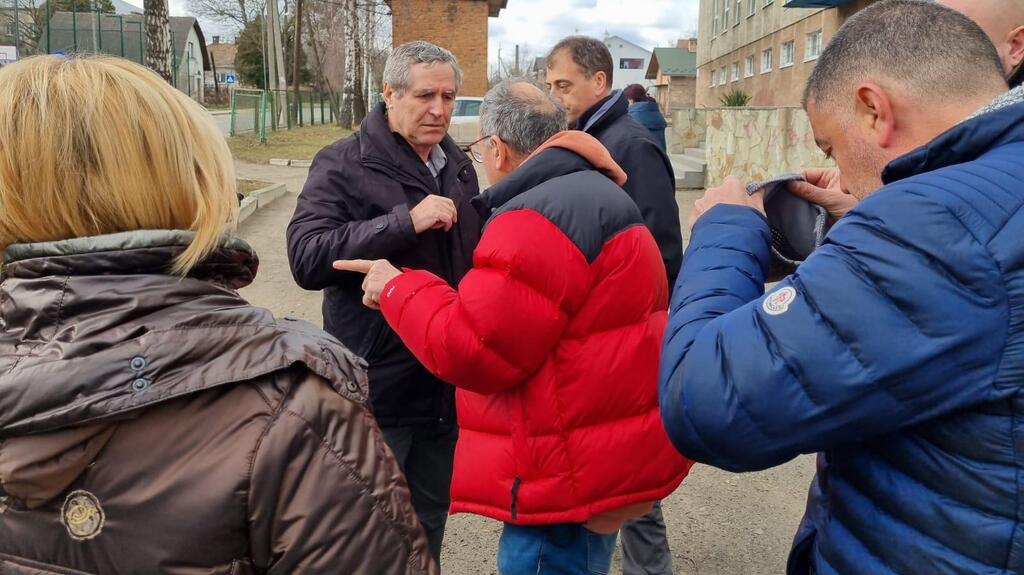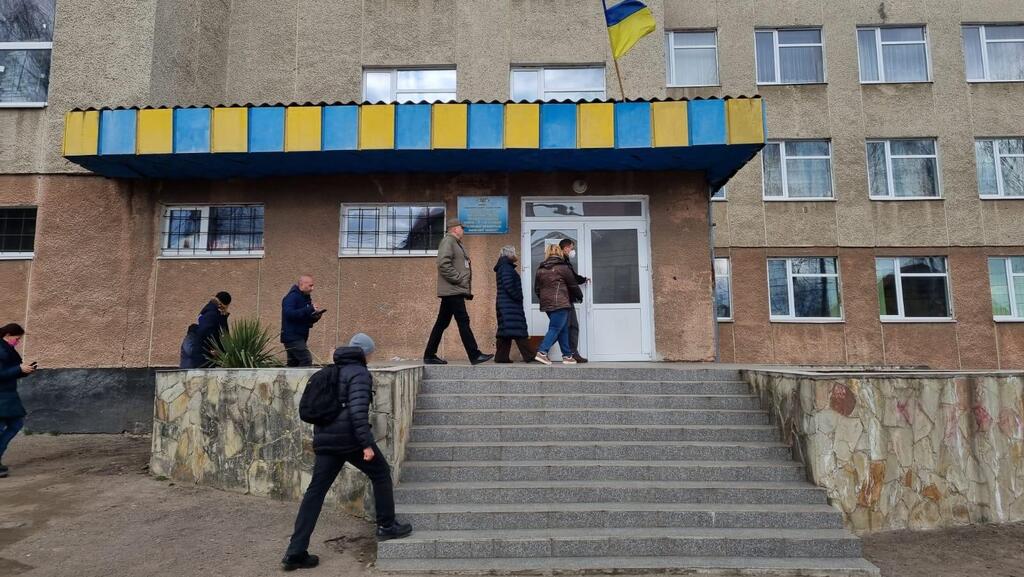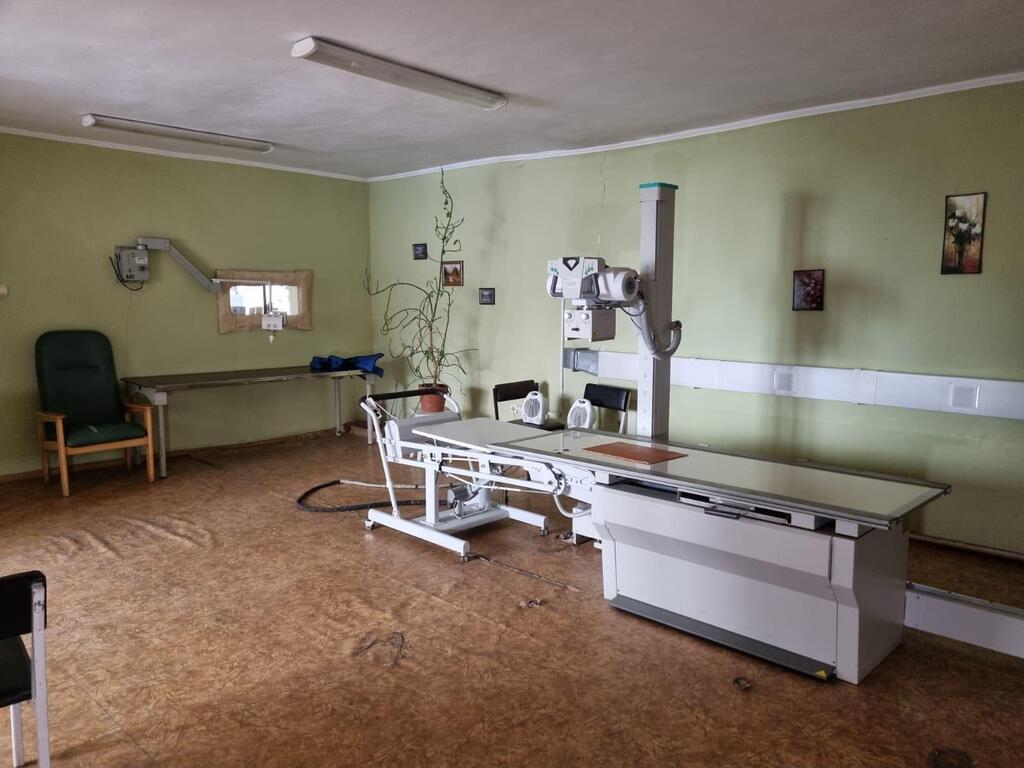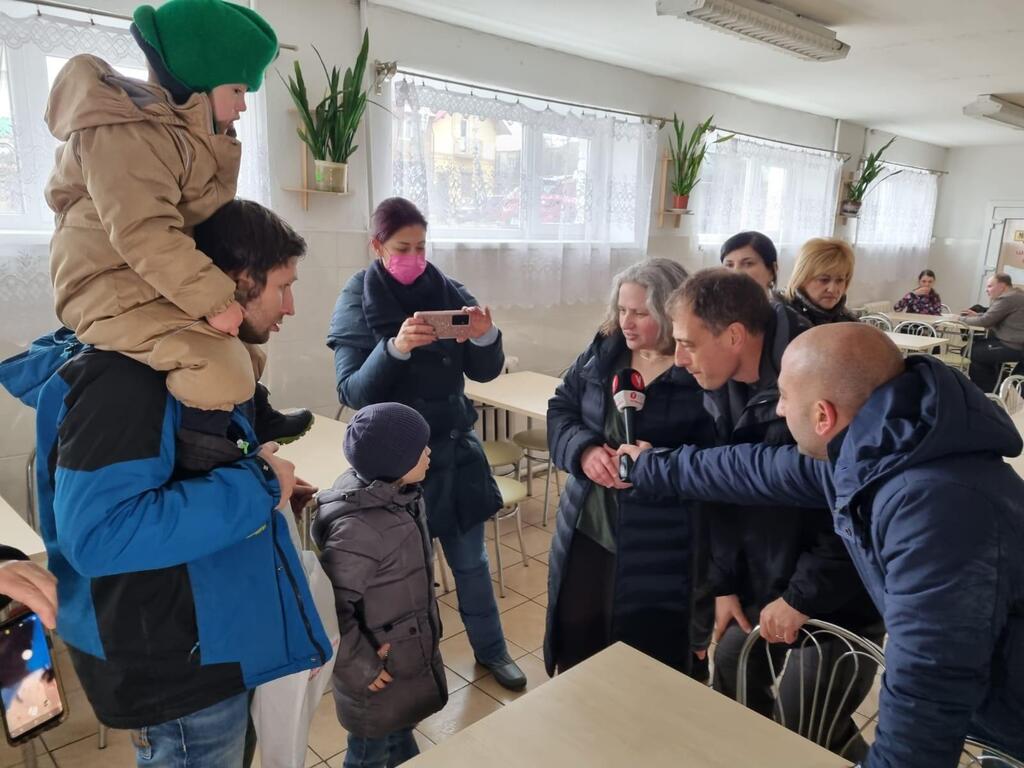Getting your Trinity Audio player ready...
Equipped with a pencil and a notebook, the official from Israel's largest hospital walks near a building at a city of Velyki Mosty in western Ukraine, while taking notes and examining the location of what will soon be an Israeli field hospital in the war-torn country.
"The exit will be here, and the ambulances will enter from here, if we have to, we can also use the rooms of the nearby school," says Israel Center for Disaster Medicine and Humanitarian Response at Sheba Medical Center Prof. Elhanan Bar-On.
4 View gallery


Prof. Elhanan Bar-On visits soon-to-be Israeli field hospital in Ukraine
(Photo: Nitzan Dror)
Velyki Mosty is located some 14 kilometers (8.7 miles) away from the Polish border, near the city of Lviv, where hundreds of thousands of Ukrainians have been pouring to seek shelter since the start of the Russian invasion two weeks ago.
Prof. Bar-On is part of an Israeli pioneer mission to Ukraine that includes doctors, diplomats, and medical personnel, who came to Ukraine to plan the establishment of a field hospital, which will begin its operation on Sunday and will work to aid the thousands of refugees fleeing from the warzone.
Already en route to the Ukrainian town, Ynet's news reporter Adir Yanko, who joined the medical delegation in its travels, spotted long lines of vehicles standing and waiting for hours in the freezing cold to escape from the country and enter Poland. And these are exactly the people the Israeli team will treat starting next week.
The project was initiated by the foreign and health ministries in cooperation with the Sheba Medical Center, and is intended to provide the residents of the area, especially refugees, medical care in a range of fields.
With the help of 80 doctors, nurses, and medical personnel from Israel, the hospital is expected to operate for at least a month. On Thursday, the shipment of medical equipment from Israel is expected to arrive.
Most of the treatment will be done in special tents that will be set up in the parking lot of a large educational institution in the town, between a medical center for children and a local hospital.
The Israeli team will provide care for children, women, pregnant women, and there will also be an internal medical complex. "The goal is to first address the medical needs of refugees passing through on their way to Poland," says the head of the Eurasia Division at the Foreign Ministry, and filling in for Israel's Ambassador to Ukraine Simona Halperin.
According to the plan, the complex will be divided into three parts: Medical area, employee residence, and logistical area. "Many children are dehydrated because they stand for hours in long lines on the way to the border and we hope that there will be no infectious diseases that will spread," Prof. Bar-On says.
According to Bar-On, it wouldn't be efficient to set up the hospital on the Polish side of the border, because Polish medical services are much better than those in Ukraine.
The main concern of the Israeli medical delegation is that the refugee crisis will soon become a health crisis. "Families coming to the border are still in fair condition, but as the refugee movement is increasing, we estimate that it will worsen and will require more medical treatments," says the director of the Safra Children's Hospital at Sheba Medical Center Dr. Itay Pesach.
Dr. Pesach warned that "this area can't handle so many people, certainly not people who have been ripped away from their homes."
Despite the risk that even the western Ukraine will soon become a combat zone, the members of the Israeli team are proud of their mission. "The fact that Israel as a country aids Ukraine and sends personnel to help means a lot, and we are the only country that does it," Dr. Pesach says.




